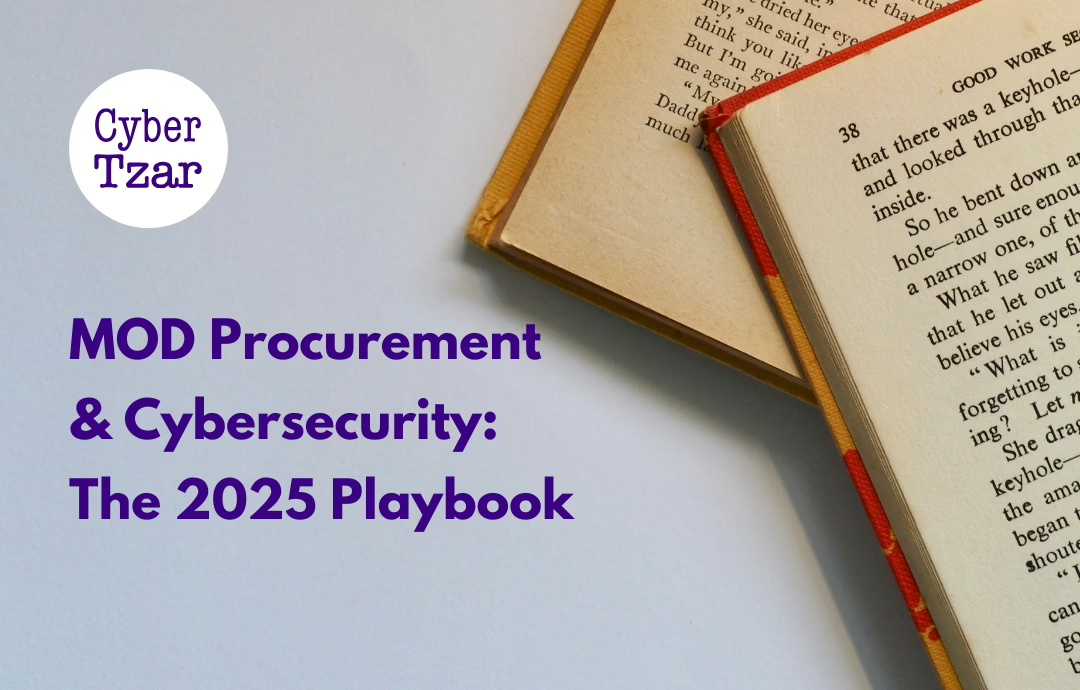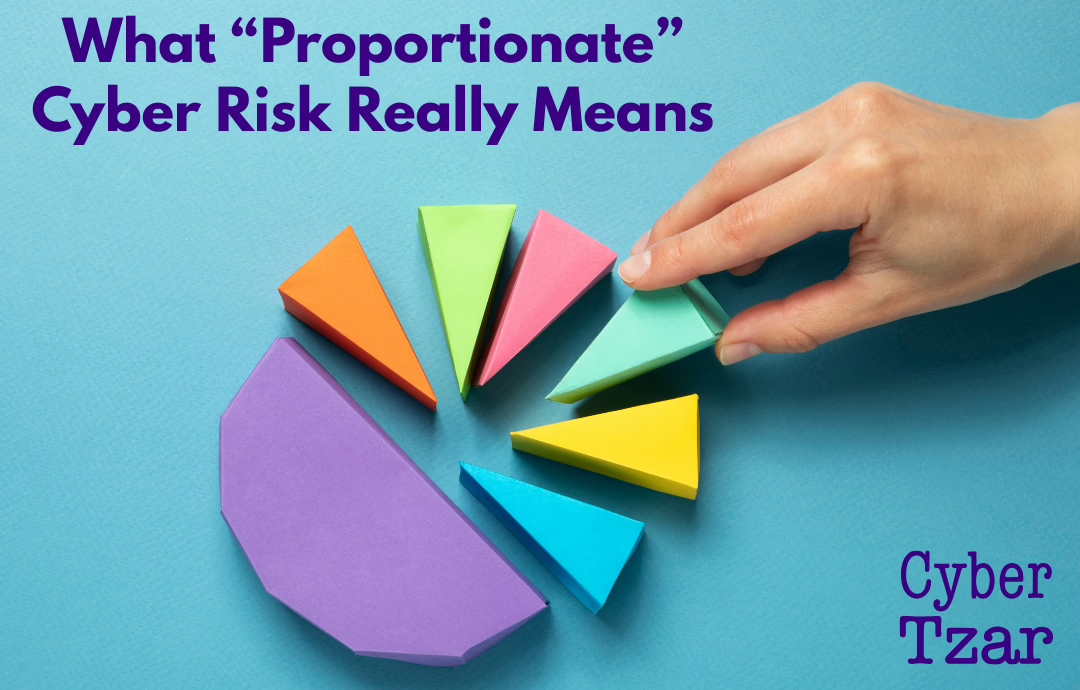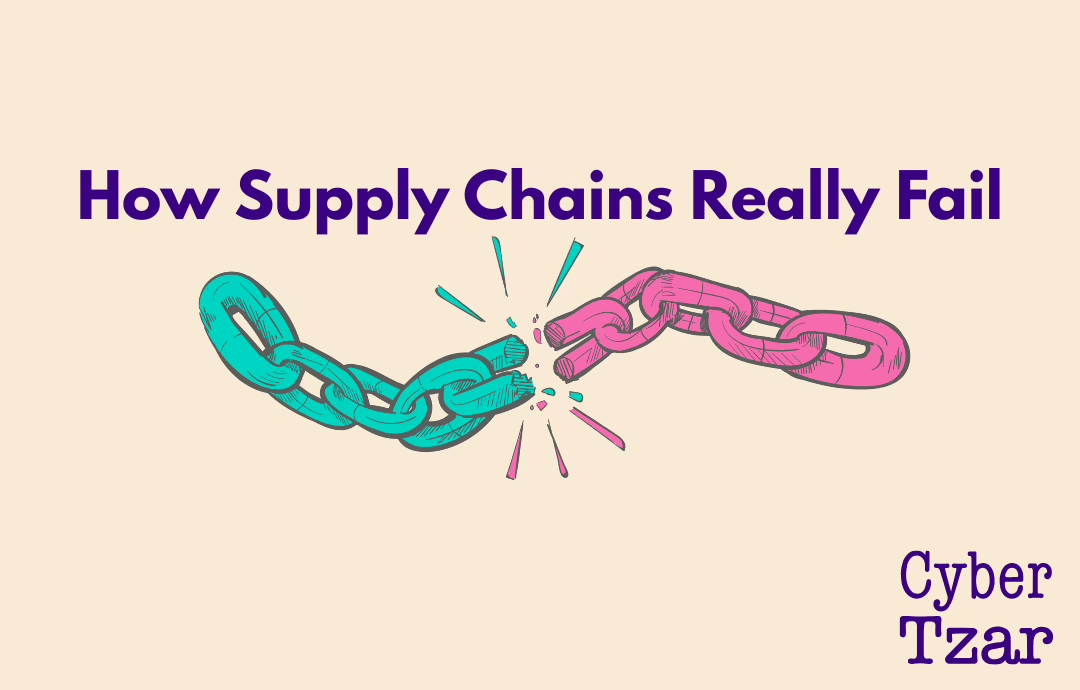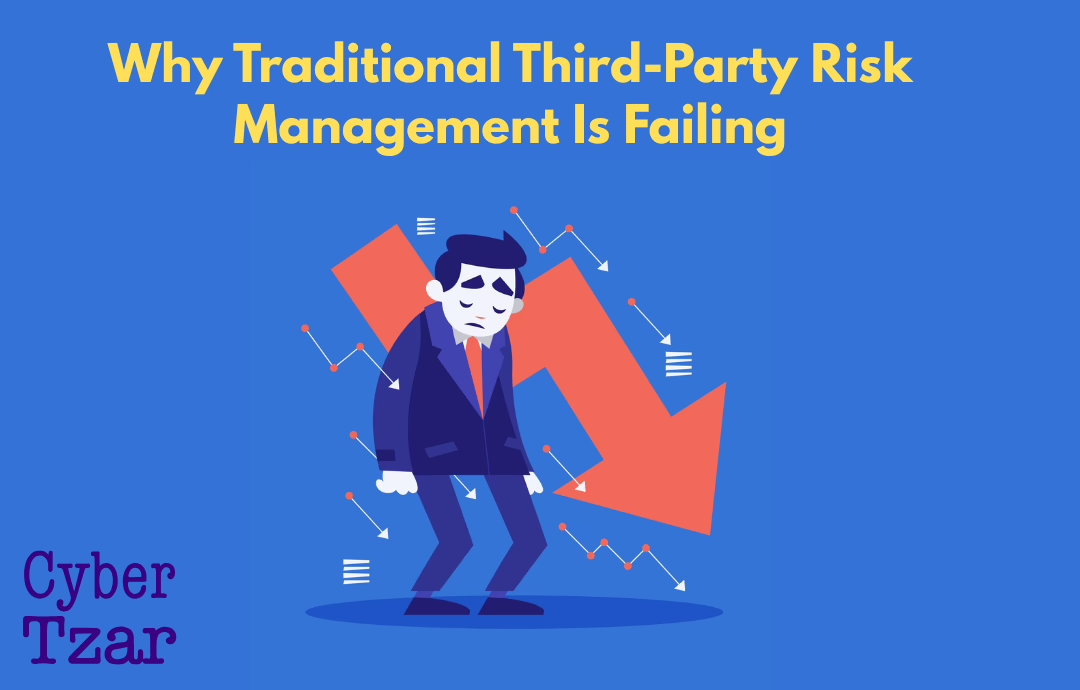Introduction
Cybersecurity is now a critical factor in defence procurement, with the Ministry of Defence (MOD) imposing stricter security requirements on its supply chain. Whether you are a large defence contractor, an SME supplying critical services, or a technology provider, failing to meet these standards can result in lost contracts, reputational damage, and increased cyber risk.
As cyber threats against the defence sector continue to rise, businesses must align with MOD security expectations, enhance their cybersecurity posture, and ensure compliance with frameworks like Cyber Essentials, DEFSTAN 05-138, and NIST 800-171.
This playbook outlines the latest MOD procurement cybersecurity requirements, key compliance frameworks, and best practices for securing defence contracts in 2025.
1️⃣ Why Cybersecurity is Now a Key Requirement in MOD Procurement
📌 State-sponsored cyber threats against defence supply chains are increasing.
📌 MOD contracts now include strict cybersecurity clauses—non-compliance means disqualification.
📌 SMEs are a prime target for cyber espionage, making supplier security a major concern.
💡 If you want to do business with the MOD in 2025, strong cybersecurity is non-negotiable.
2️⃣ MOD Cybersecurity Compliance Requirements for Suppliers
To qualify for MOD contracts, suppliers must demonstrate compliance with specific cybersecurity frameworks based on the type of contract, data sensitivity, and supply chain role.
🔹 Cyber Essentials & Cyber Essentials Plus (Mandatory for all MOD contracts handling ‘Official’ data)
What is it?
✔ A UK government-backed security standard.
✔ Focuses on basic cyber hygiene to protect against common threats.
✔ Cyber Essentials Plus includes independent verification of security controls.
Who Needs It?
✅ Any supplier bidding for MOD contracts that involve ‘Official’ data.
✅ SMEs providing IT, logistics, or professional services.
✅ Companies looking for a cost-effective way to improve cybersecurity posture.
💡 Cyber Essentials is the entry-level requirement—without it, you cannot secure MOD contracts.
🔹 DEFSTAN 05-138 (MOD Cyber Security Standard) (For suppliers handling sensitive or classified MOD data)
What is it?
✔ The MOD’s cybersecurity standard for defence contractors and supply chain partners.
✔ Ensures suppliers implement risk-based security controls.
✔ Aligns with ISO 27001 and NIST 800-171 best practices.
Who Needs It?
✅ Defence contractors handling sensitive MOD data.
✅ Companies providing IT services, cloud storage, or defence technology.
✅ Suppliers required to comply with DEFCON 658 (Cybersecurity in Defence Contracts).
💡 DEFSTAN 05-138 goes beyond Cyber Essentials, ensuring stronger security for high-risk suppliers.
🔹 NIST 800-171 & ISO 27001 (For UK defence suppliers working with US & NATO partners)
What is it?
✔ NIST 800-171 is a US cybersecurity standard for protecting sensitive government data.
✔ ISO 27001 is an international standard for managing information security.
✔ Both frameworks focus on risk management, access controls, and data protection.
Who Needs It?
✅ UK companies working on joint defence projects with US/NATO partners.
✅ Defence manufacturers exporting to the US Department of Defense (DoD).
✅ MOD suppliers handling classified or controlled technical information.
💡 If your business operates internationally, expect NIST or ISO 27001 compliance to be required.
3️⃣ The Biggest Cybersecurity Challenges for MOD Suppliers
🔹 1. Supply Chain Security Weaknesses
Many MOD suppliers rely on third-party contractors, creating hidden cyber risks.
Common Risks:
- Unsecured subcontractors that don’t meet MOD security standards.
- No visibility over third-party risks, increasing exposure to supply chain attacks.
- SMEs lacking cybersecurity resources, making them prime targets for hackers.
🛡️ How to Reduce Risk:
✔ Require Cyber Essentials certification from all subcontractors.
✔ Conduct regular security audits on third-party vendors.
✔ Use a zero-trust security model to limit supplier access.
🔹 2. Ransomware & Espionage Threats
Cybercriminals and state-sponsored attackers target MOD suppliers to steal sensitive defence data.
Common Risks:
- Phishing emails tricking staff into granting access.
- Ransomware attacks locking critical MOD project files.
- Foreign adversaries using supply chain attacks to breach MOD networks.
🛡️ How to Reduce Risk:
✔ Train staff to recognise phishing attacks and social engineering.
✔ Implement endpoint detection & response (EDR) tools to detect ransomware early.
✔ Encrypt all sensitive MOD data at rest and in transit.
🔹 3. Compliance & Certification Gaps
Many suppliers struggle to keep up with evolving MOD cybersecurity requirements.
Common Risks:
- Outdated security policies that don’t align with new MOD standards.
- Failure to pass MOD cybersecurity audits, leading to contract rejection.
- Unclear responsibility for security compliance within the organisation.
🛡️ How to Reduce Risk:
✔ Assign a cybersecurity lead to oversee compliance.
✔ Keep up to date with MOD security bulletins and new regulations.
✔ Conduct internal audits before official MOD security assessments.
4️⃣ Best Practices for Strengthening Cybersecurity in MOD Procurement
✅ 1. Build a Defence-Specific Cybersecurity Programme
- Establish clear security policies aligned with MOD standards.
- Assign responsibilities for cybersecurity oversight within your organisation.
- Invest in cyber threat intelligence to stay ahead of emerging risks.
✅ 2. Strengthen Supplier & Third-Party Security Controls
- Require Cyber Essentials certification for all subcontractors.
- Use continuous security monitoring to detect vulnerabilities in your supply chain.
- Implement strict access controls for third-party vendors.
✅ 3. Secure Sensitive MOD Data
- Encrypt all MOD-related communications and stored data.
- Use secure collaboration tools that meet MOD encryption standards.
- Monitor who accesses MOD project files and limit permissions.
✅ 4. Improve Incident Response & Business Continuity Planning
- Develop a cyber incident response plan tailored for MOD contracts.
- Conduct regular security drills to test response capabilities.
- Ensure MOD project data is backed up securely and can be restored quickly.
💡 MOD suppliers must go beyond compliance—active cybersecurity management is essential for securing and retaining contracts.
Final Thoughts: Cybersecurity is Now Central to MOD Procurement
In 2025, the MOD expects suppliers to actively manage cybersecurity risks, not just tick compliance boxes. Businesses that fail to meet cybersecurity standards risk losing contracts, while those that invest in security best practices will gain a competitive edge in the defence sector.
🔹 Key Takeaways for MOD Suppliers:
✔ Cyber Essentials is mandatory for all MOD contracts handling ‘Official’ data.
✔ DEFSTAN 05-138 & NIST 800-171 apply to suppliers handling sensitive defence data.
✔ Third-party security must be tightly controlled to prevent supply chain attacks.
✔ Proactive cybersecurity can strengthen contract bids and build trust with the MOD.
By implementing robust security measures, MOD suppliers can reduce cyber risk, ensure compliance, and maintain long-term partnerships with the UK’s defence sector.
📢 What’s Next?
💡 Next in the series: “Bridging the Cyber Insurance Gap: Challenges & Solutions” (w/c 21 May).
Would you like a cybersecurity audit to prepare for MOD contracts? Get in touch today. 🚀



